| Time |
Agenda |
| 21:00 - 21:10 |
Welcome Remarks
RACC12 Chair
- Prof. Jim Falk,
Honorary Professorial Fellow, Melbourne Sustainable Society Institute, University of Melbourne; Emeritus Professor, University of Wollongong, Australia
-
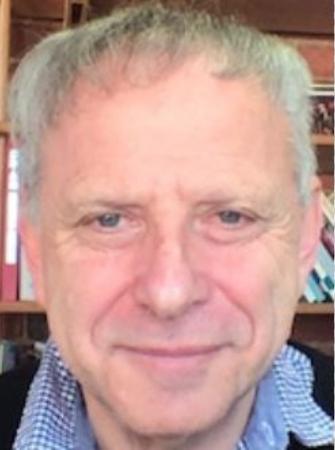
Prof. Jim Falk is an Honorary Professorial Fellow in the Melbourne Sustainable Society Institute, and Professor Emeritus at the University of Wollongong. His research has focussed on science and technology in their social contexts with particular emphasis on issues associated with globalisation, climate change, technological change, nuclear technology and militarisation, and information technology in society. His most recent book is "Worlds in Transition: Evolving Governance Across a Stressed Planet", co-authored with Professor Joseph Camilleri. His most recent research focuses on issues associated with climate change, geoengineering, and the history and social and policy implications of concepts of time.
Speakers
- Prof. Yuan Tseh Lee,
President Emeritus, Academia Sinica; Nobel Laureate in Chemistry 1986, Taiwan
-
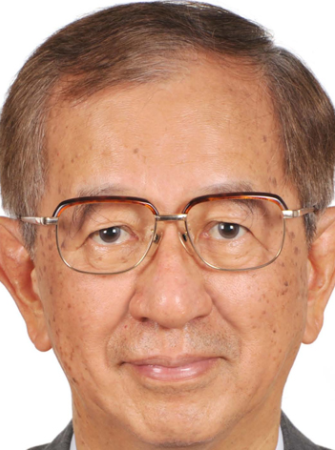
Born in Taiwan in 1936, Yuan T. Lee received his B.S. degree from Taiwan U. in 1959 and Doctorate from UC Berkeley in 1965. He joined Prof. Dudley Herschbach at Harvard as a postdoc fellow in 1967. He had faculty appointments at U. of Chicago and UC Berkeley. He was University Professor and Principal Investigator at UC Berkeley and the Lawrence Berkeley Laboratory before he became President of Academia Sinica (1994-2006). From 2011 to 2014, he served as President of the International Council for Science (ICSU). He has received numerous awards and honors, including 1986 Nobel Prize in Chemistry, U.S. National Medal of Science, Faraday Medal, Jawaharlal Nehru Birth Centenary Medal, Othmer Gold Medal, Ettore Majorana-Erice-Science for Peace Prize, and Doctor Honoris Causa from 42 universities.
|
| 21:10 - 22:00 |
Plenary Session 1: The Regional Adaptation Agenda - Synergies and Challenges |
| 21:10 - 22:00 |
Moderator
- Prof. Cherry A. Murray,
Deputy Director for Research, Biosphere2 and Professor of Physics, University of Arizona; Benjamin Peirce Professor of Technology and Public Policy and Professor of Physics, Emerita, Harvard University, U.S.A.
-
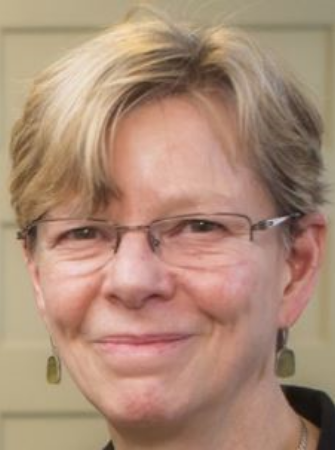
Cherry Murray, Benjamin Peirce Professor of Technology and Public Policy, John A. Paulson School of Engineering and Applied Sciences, Professor of Physics, Emerita, Harvard University, is Deputy Director of Research, Biosphere2 and Professor of Physics at the University of Arizona. Dr. Murray served as Director of the US Department of Energy's Office of Science from 2015 until 2017. She was dean of Harvard University's School of Engineering and Applied Sciences from 2009 until 2014, Principal Associate Director and Deputy Director for Science and Technology from 2004 to 2009 at Lawrence Livermore National Laboratory. From 1978 to 2004, Dr. Murray held a number of positions including Senior VP at Bell Laboratories, Lucent Technologies, formerly AT&T Bell Laboratories.
Speakers
- Dr. Emily Shuckburgh,
Director, Cambridge Zero, the University of Cambridge's climate change initiative, U.K.
-
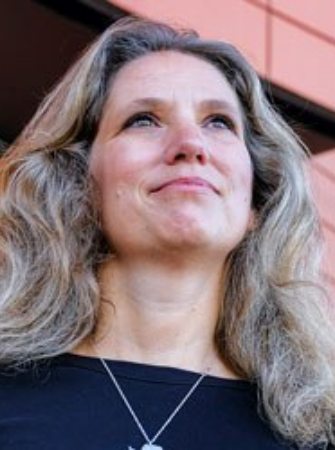
Dr Emily Shuckburgh is Director of Cambridge Zero at the University of Cambridge and Reader in Environmental Data Science at the Department of Computer Science and Technology. She is a mathematician and climate scientist and a Fellow of Darwin College, a Fellow of the Cambridge Institute for Sustainability Leadership, an Associate Fellow of the Centre for Science and Policy and a Fellow of the British Antarctic Survey. Dr Shuckburgh leads the UKRI Centre for Doctoral Training on the Application of AI to the study of Environmental Risks (AI4ER). Until April 2019 she led a UK national research programme on the Southern Ocean and its role in climate (ORCHESTRA), and was deputy head of the Polar Oceans Team and head of the Data Science Group at British Antarctic Survey.
- Prof. David G Victor,
Professor, International Relations, School of Global Policy and Strategy, University of California, San Diego, U.S.A.
-
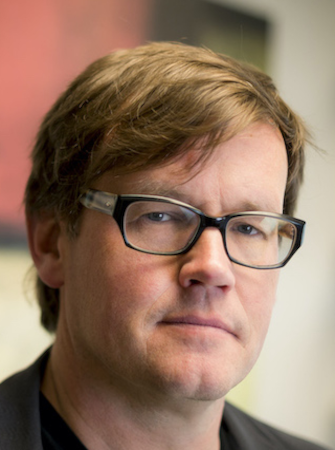
David Victor is a professor of industrial organization and innovation at the School of Global Policy and Strategy at UC San Diego. He is a director of the campus-wide Deep Decarbonization Initiative, which focuses on real world strategies for bringing the world to nearly zero emissions of warming gases. Victor is also an adjunct professor in Climate, Atmospheric Science & Physical Oceanography at the Scripps Institution of Oceanography and a professor (by courtesy) in Mechanical and Aerospace Engineering. Prior to joining the faculty at UC San Diego, Victor was a professor at Stanford Law School where he taught energy and environmental law. He is also co-Chair of The Brookings Institution's Initiative on Energy and Climate. Ph.D. from the MIT and A.B. from Harvard University.
- Prof. Kazuhiko Takeuchi,
President, Institute for Global Environmental Strategies (IGES); Project Professor, Institute for Future Initiatives (IFI), The University of Tokyo, Japan
-
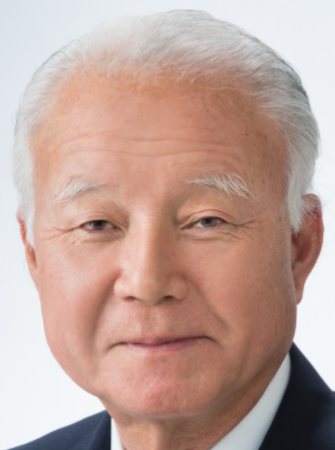
Kazuhiko Takeuchi is President of the Institute for Global Environmental Strategies (IGES), and Project Professor of the Institute for Future Initiatives (IFI) at the University of Tokyo. He has served, inter alia, as Chair of the Central Environment Council, Government of Japan, as Vice-President of the Science Council of Japan, and as Editor-in-Chief of the journal Sustainability Science (Springer Nature). Educated and trained as a geographer and landscape ecologist at the University of Tokyo, he engages in research and education to create eco-friendly environments for the harmonious coexistence of people and nature, focusing on Asia and Africa. He leads the Satoyama Initiative, and the PANCES research project on natural capital and ecosystem services.
- Dr. Ismail Serageldin, (Pre-recorded speech only)
Founding Director Emeritus, The Library of Alexandria, Egypt
-
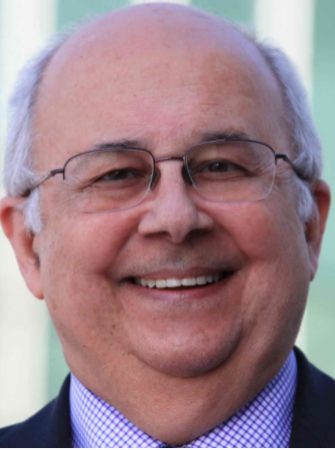
Ismail Serageldin was the Founding Director of the Bibliotheca Alexandrina, the New Library of Alexandria (2001-2017) and is currently the Emeritus Librarian of Alexandria. Before that he was the VP of the World Bank (1993-2000). He graduated from Cairo University and holds a PhD from Harvard University. He has lectured widely, published more than 100 books and 500 articles, and has received many honors and awards and more than 35 honorary doctorates from all over the word. He currently serves on many advisory boards and committees for academic, research, scientific and international institutions and civil society efforts.
Discussant
- Prof. Charles F. Kennel,
Distinguished Professor and Director Emeritus, Scripps Institution of Oceanography, University of California, San Diego (UCSD); Distinguished Visiting Scholar, Centre for Science and Policy, Unoiversity of Cambridge, U.S.A.
-
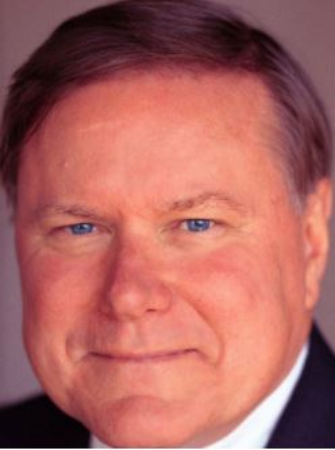
Charles Kennel was Professor and Chair of the UCLA Physics Department and UCLA Executive Vice Chancellor, NASA Associate Administrator for Mission to Planet Earth, and Director of the Scripps Institution of Oceanography. He chaired the U.S. National Academy's Board on Physics and Astronomy and Space Studies, and its committees on Global Change Research and Fusion Sciences. He was a member of the NASA Advisory Council for 12 years. He presently chairs the California Council on Science and Technology. A Distinguished Visiting Fellow of Christ's College, Cambridge, and distinguished Professor Emeritus at Scripps, Kennel belongs to the National Academy of Sciences, the American Academy of Arts and Sciences, the American Philosophical Society, and the International Academy of Astronautics.
Question and Answer
|
| 22:00 - 22:15 |
Break time |
| 22:15 - 23:00 |
Plenary Session 2: Climate Change now and projected Resilience after COVID-19 |
| 22:15 - 23:00 |
Moderator
- Prof. Charles F. Kennel,
Distinguished Professor and Director Emeritus, Scripps Institution of Oceanography, University of California, San Diego (UCSD); Distinguished Visiting Scholar, Centre for Science and Policy, Unoiversity of Cambridge, U.S.A.
-

Charles Kennel was Professor and Chair of the UCLA Physics Department and UCLA Executive Vice Chancellor, NASA Associate Administrator for Mission to Planet Earth, and Director of the Scripps Institution of Oceanography. He chaired the U.S. National Academy's Board on Physics and Astronomy and Space Studies, and its committees on Global Change Research and Fusion Sciences. He was a member of the NASA Advisory Council for 12 years. He presently chairs the California Council on Science and Technology. A Distinguished Visiting Fellow of Christ's College, Cambridge, and distinguished Professor Emeritus at Scripps, Kennel belongs to the National Academy of Sciences, the American Academy of Arts and Sciences, the American Philosophical Society, and the International Academy of Astronautics.
Speakers
- Prof. Joy Jacqueline Pereira,
Principal Research Fellow, Universiti Kebangsaan Malaysia; Vice-Chair, Working Group II, IPCC, Malaysia
-
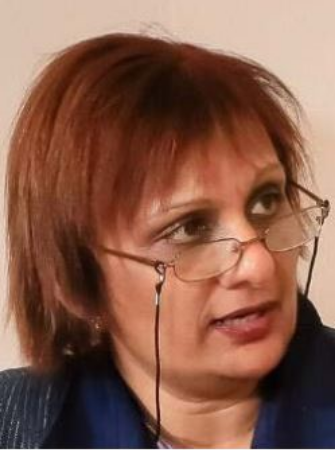
Professor Joy Jacqueline Pereira is a Principal Research Fellow at Universiti Kebangsaan Malaysia's Southeast Asia Disaster Prevention Research Initiative (SEADPRI-UKM) and Fellow of the Academy of Sciences Malaysia. Prof. Pereira is Vice-Chair of the Intergovernmental Panel on Climate Change (IPCC) Working Group 2 on Impacts, Adaptation and Vulnerability. She was a Review Editor of the IPCC Special Report on Global Warming of 1.5℃. Prof. Pereira is also a Board Member of the UNDRR Asia Pacific Science, Technology and Academic Group (ASTAAG) that supports implementation of the Sendai Framework for Disaster Risk Reduction. She is also Director of the Asian Network on Climate Science and Technology (ANCST), a virtual platform that links scientists working on climate issues in Asia.
- Dr. Riko Oki,
Manager for GPM Research, Senior Researcher, Earth Observation Research Center, Japan Aerospace Exploration Agency (JAXA), Japan
-

Dr. Riko Oki is a Senior Researcher at Japan Aerospace Exploration Agency. She is a meteorologist and climatologist. After completing her doctoral dissertation on the theme of precipitation observation, she joined the then-National Space Development Agency of Japan (NASDA), later renamed JAXA. She has since built her expertise career in the field of Earth observation research, especially in satellite monitoring on global precipitation. She has been leading the cooperation with NASA through the Tropical Rainfall Measuring Mission (TRMM) and the Global Precipitation Measurement Mission (GPM) and received several awards for her achievements.
- Prof. Nobuo Mimura,
Specially Appointed Professor, Global and Local Environment Co-creation Institute(GLEC), Ibaraki University, Japan
-
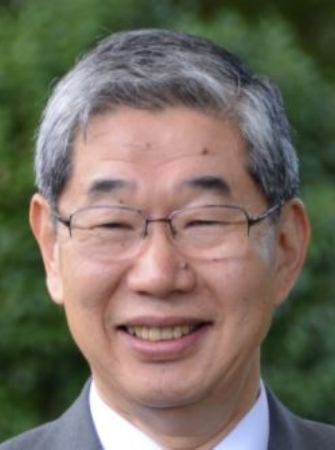
Nobuo Mimura was President of Ibaraki University until March 2020 after serving Professor in Coastal and Environmental Engineering at Ibaraki University and The University of Tokyo, and Director of Institute for Global Change Adaptation Science at Ibaraki University. He was intensively engaged in the study of climate change impact assessment and adaptation in Japan, Asia and small islands in the South Pacific. He also served as coordinating lead author and review editor of the Intergovernmental Panel on Climate Change (IPCC) and as advisor to several Ministries of the Japanese Government as well as international bodies such as the World Bank.
- Dr. Saleemul Huq,
Director, International Centre for Climate Change & Development (ICCCAD), Bangladesh
-
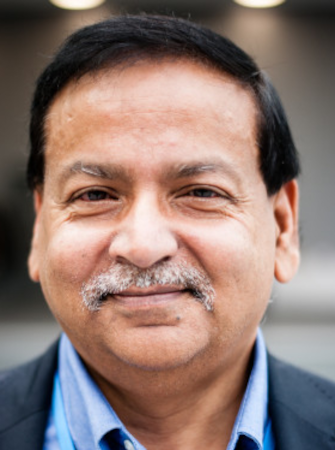
Prof. Saleemul Huq is the Director of the International Centre for Climate Change and Development (ICCCAD) at Independent University, Bangladesh (IUB) since 2009 and Senior Fellow at the International Institute for Environment & Development (IIED) in London. He is also Senior Advisor on Locally Led Action, Global Centre on Adaptation (GCA) and Advisor of Climate Change Programme at Brac. Before that Dr Huq was the Director of the Climate Change Programme at IIED and founding Executive Director at the Bangladesh Centre for Advanced Studies (BCAS). He was one of the coordinating lead authors of 'Inter-relationships between adaptation and mitigation' in the IPCC's Fourth Assessment Report (2007).
- Dr. Ryohei Misumi,
Manager, Storm, Flood and Landslide Research Division, National Research Institute for Earth Science and Disaster Resilience (NIED), Japan
-
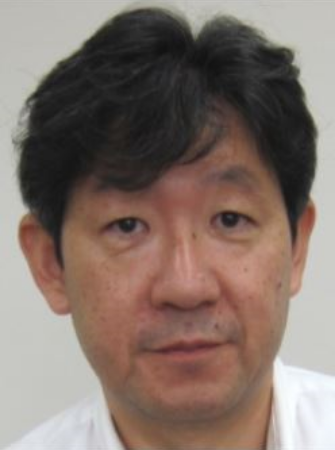
Dr. Ryohei Misumi graduated the Atmosphere and Hydrosphere Course of the Graduate School of Science in Nagoya University in 1995. Since 1992, He has been working in the National Research Institute for Earth Science and Disaster Resilience (NIED), to study mechanisms of heavy rainfall and forecasting of floods and landslides. Now He serves as the manager of Storm, Flood and Landslide Research Division. He had been a member of the International Commission on Clouds and Precipitation from 2008 to 2016, and the International Science Steering Committee of Tokyo Metropolitan Area Convection Study for Extreme Weather Resilient Cities (TOMACS) from 2013 to 2016.
Question and Answer
|
| 23:00 - 23:15 |
Break time |
| 23:15 - 24:00 |
Plenary Session 3: Regional Resilience in Developing regions |
| 23:15 - 24:00 |
Moderator
- Prof. Dr. Adel El Sayed Tawfik El-Beltagy,
Chair, International Dryland Development Commission (IDDC), Egypt
-
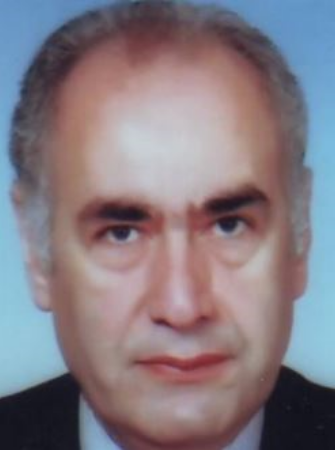
Prof. Adel S. El-Beltagy Chair, Int'l Dryland Dev. Commission (IDDC); Prof. at Arid Land Agric. Graduate Studies & Res. Institute, AinShams Univ. Egypt; Board member of TWAS; Former Minister of Agric. & Land Reclamation; Former President, Gov. Board of Int'l Centre for Advanced Mediterranean Agro. Studies (CIHEAM); Chair Executive Board, Bibliotheca Alex; Chair, Global Forum on Agric. Res. (GFAR); Served as Vice Chair / Board Member, Global Crop Diversity Trust (GCDT); UN Millennium Ecosys. Assessment Board; DG, Int'l Center for Agric. Res. in Dry Areas (ICARDA); Has been awarded: Golden Medal / CIHEAM; Commander of Order of Agric. Merit (France); Sultan Qaboos 'First Class' Order for Culture, Sci. & Arts, AlIstiklal Medal by His Majesty King AbdullahIIbin Hussein of Jordan; Fellow of Univ. of Wales, Aberystwyth, UK.
Speakers
- Prof. Miguel Altieri,
Professor Emeritus, Department of Environmental Science, Policy, & Management, University of California, Berkeley, U.S.A.; Co-Director, Centro LatinoAmericano de Investigaciones Agroecologicas CELIA, Colombia
-

Miguel A Altieri is Professor Emeritus at the University of California, Berkeley and Co-Director of the Centro LatinoAmericamo de Investigaciones Agroecologicas (CELIA) in Colombia. He served in various scientific advising capacities to the UNDP, FAO, CGIAR and hundreds of Universities, He was the President of the Latin American Scientific Society of Agroecology ( www.socla.co). In February 2018 he was inducted to the Earth Hall of Fame by the Kyoto Prefecture, Japan. In December 2018 he received from the Universidad de Guadalajara in Mexico the prize "Biodiversidad, Sociedad y Territorio". He has written more than 250 scientific articles and more than 20 books among them Agroecology: the science of sustainable agriculture and Agroecology: science and politics.
- Dr. Raj Paroda,
Chairman, Trust for Advancement of Agricultural Sciences (TAAS); former Executive Secretary, Asia-Pacific Association of Agricultural Research Institutions (APAARI), India
-
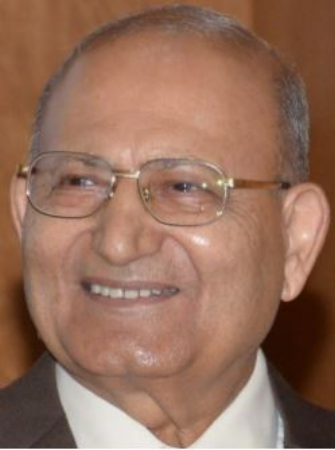
Dr. Raj S. Paroda, former Director General, ICAR and Secretary DARE, GoI made significant contributions in agriculture, modernized Indian NARS and created 30 research institutions. He was President, Indian Science Congress, National Academy of Agricultural Sciences; Founder Chairman, GFAR; Chairman, ICRISAT Board; Executive Secretary, APAARI. Seventeen Universities, including Ohio State University awarded him D.Sc. degree. He is Honorary Fellow of American Society of Crop Science, American Society of Agronomy, Fellow of TWAS and Agricultural Academies of Russia, Armenia, Georgia, Tajikistan, Kazakhstan. He is recipient of many national and international awards, including Padma Bhushan. Currently, he is Chairman, Trust for Advancement of Agricultural Science, New Delhi
- Mr. Aly Abousabaa,
Director General, ICARDA, Lebanon
-
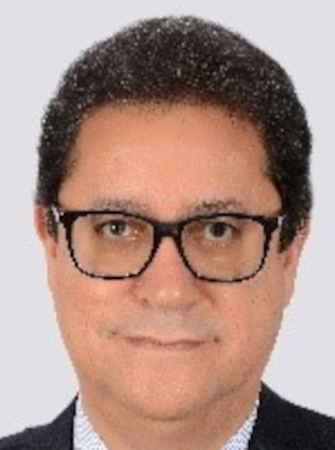
Mr Aly Abousabaa, Director-General of ICARDA is an Egyptian national, a Civil Engineer from Alexandria University, Egypt with MA in Civil Engineering from Montana State University. Mr Abousabaa has a strong record of strategic leadership and management of complex sustainable development operations and resources in developing countries. Was Vice President of the African Development Bank for Operations Sector. His work had impact on the lives of millions of people in Africa. He had established a global network with international partner institutions on development matters and several African institutions. Had also developed and maintained executive contacts and communication channels across many institutions.
- Prof. Dr. Swadhin K. Behera,
Director, Application Laboratory, Japan Agency for Marine-Earth Science and Technology (JAMSTEC); Professor, Department of Ocean Technology, Policy, and Environment, The University of Tokyo, Japan, India
-
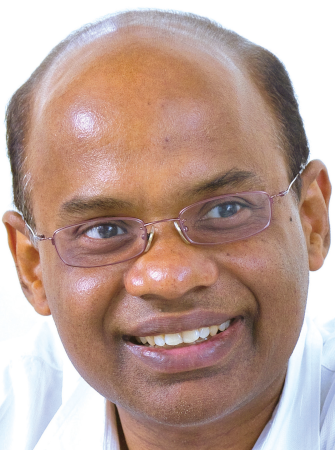
Present Position: Director, Application Laboratory, JAMSTEC Education History: Ph. D. in Oceanography (1998) Employment History: 1988-1998 Researcher at IITM, India and 1998-present in various positions in JAMSTEC. 2009-present, Adjunct Professor, The University of Tokyo Academic Highlights/Achievements/Awards: Published over 150 scientific articles in reputed international journals with an average citation of 45 and h-index of 37 in web of science. Several awards from JAMSTEC and American Geophysical Union. Present Research Interests: Coupled ocean-atmosphere variability in tropical oceans (like ENSO and Indian Ocean Dipole), climate predictions and application of climate information (including predictions) in energy, human health, agriculture and water managements.
Question and Answer
|
| 24:00 - 24:15 |
Break time |
| 24:15 - 25:00 |
Plenary Session 4: Implications and Conclusions |
| 24:15 - 25:00 |
Moderator
- Prof. Jim Falk,
Honorary Professorial Fellow, Melbourne Sustainable Society Institute, University of Melbourne; Emeritus Professor, University of Wollongong, Australia
-

Prof. Jim Falk is an Honorary Professorial Fellow in the Melbourne Sustainable Society Institute, and Professor Emeritus at the University of Wollongong. His research has focussed on science and technology in their social contexts with particular emphasis on issues associated with globalisation, climate change, technological change, nuclear technology and militarisation, and information technology in society. His most recent book is "Worlds in Transition: Evolving Governance Across a Stressed Planet", co-authored with Professor Joseph Camilleri. His most recent research focuses on issues associated with climate change, geoengineering, and the history and social and policy implications of concepts of time.
Commentators
- Prof. Tetsuzo Yasunari,
Director General, Research Institute for Humanity and Nature (RIHN), Japan
-
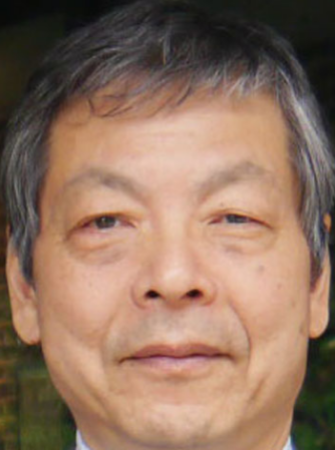
Prof. Tetsuzo Yasunari received Ph.D from Kyoto University in1980. His main fields of study are climate dynamics and global environmental change including human impacts on the earth climate system. He is professor emeritus of University of Tsukuba and Nagoya University. He was a member of Joint Scientific Committee of World Climate Research Programme (WCRP). He is a review editor of IPCC-AR6 (Working Group I), and IPCC-AR5. Since April 2013 he is Director General of Research Institute for Humanity and Nature (RIHN) in Kyoto. He is Chairman of the Future Earth National Committee under Science Council of Japan, and is a member of Future Earth Advisory Committee since March 2018. He is a fellow of the Japan Geoscience Union (JpGU).
- Prof. Rita R. Colwell,
Distinguished University Professor, Center for Bioinformatics and Computational Biology, University of Maryland College Park; Professor, Johns Hopkins Bloomberg School of Public Health, U.S.A.
-
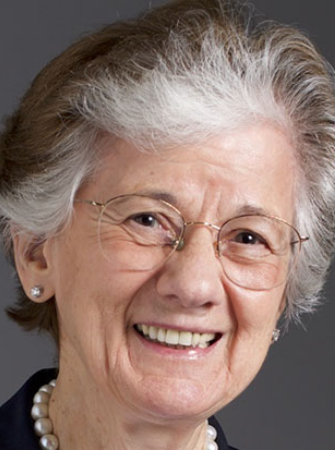
Distinguished Prof., U Maryland College Park & Johns Hopkins School of Public Health; Chairman Emeritus, Canon U.S. Life Sciences; Founder, CosmosID Inc. Dr. Colwell served as 11th Director, National Science Foundation and Co-chair, National Science and Technology Council and elected member of United States National Academy of Sciences, Royal Swedish Academy, Stockholm, Royal Society Canada, Royal Irish and American Academy Arts and Sciences, and American Philosophical Society. Dr. Colwell received the Stockholm Water Prize, bestowed by the King of Sweden; Singapore Water Prize; National Medal of Science, awarded by President of the United States, and Order of Rising Sun, Gold and Silver Star, bestowed by Emperor of Japan. B.S., M.S., Purdue; Ph.D., U Washington.
- Prof. Yuan Tseh Lee,
President Emeritus, Academia Sinica; Nobel Laureate in Chemistry 1986, Taiwan
-

Born in Taiwan in 1936, Yuan T. Lee received his B.S. degree from Taiwan U. in 1959 and Doctorate from UC Berkeley in 1965. He joined Prof. Dudley Herschbach at Harvard as a postdoc fellow in 1967. He had faculty appointments at U. of Chicago and UC Berkeley. He was University Professor and Principal Investigator at UC Berkeley and the Lawrence Berkeley Laboratory before he became President of Academia Sinica (1994-2006). From 2011 to 2014, he served as President of the International Council for Science (ICSU). He has received numerous awards and honors, including 1986 Nobel Prize in Chemistry, U.S. National Medal of Science, Faraday Medal, Jawaharlal Nehru Birth Centenary Medal, Othmer Gold Medal, Ettore Majorana-Erice-Science for Peace Prize, and Doctor Honoris Causa from 42 universities.
- Dr. Chiho Watanabe,
President, National Institute for Environmental Studies (NIES), Japan
-
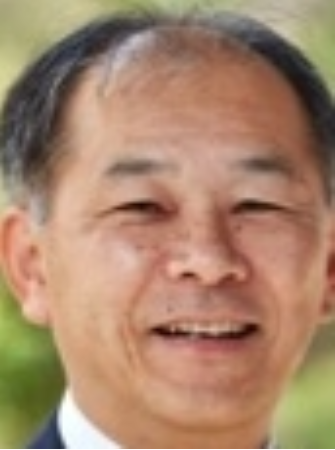
Dr. Chiho Watanabe has been the President of the National Institute for Environmental Studies since 2017. He completed his Ph.D. (health science) at the University of Tokyo, Japan in 1991. He was a Professor of the University of Tokyo from 2005 to 2017. Having a background in toxicology and nutrition, he has conducted many experimental and field studies on toxicant-nutrient-life style interactions and their health impacts in Asian populations. He has also been engaged in several inter-disciplinary projects/initiatives associated with the issue of sustainability and health. He serves as president of the Society of Health and Human Ecology (Japan) and is former vice-president of the Society of Human Ecology (international).
Discussion: Towards conclusions
|






















